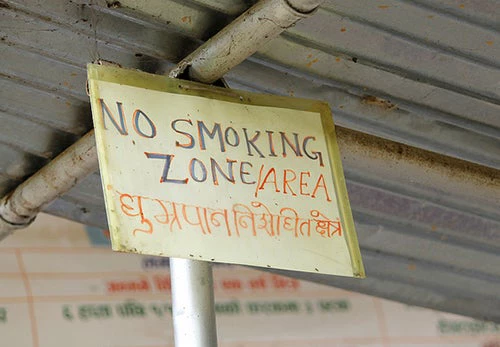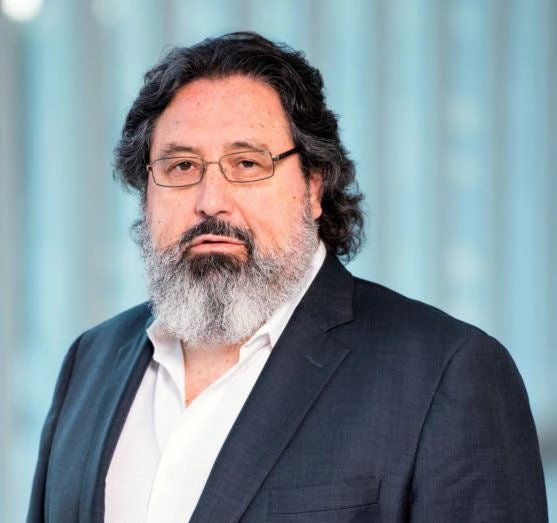Last week, I participated in the 16th World Conference on Tobacco or Health (WCTOH) in Abu Dhabi--a scientific event where the latest developments in tobacco control were presented.
While there was general agreement that the World Health Organization 2005 Framework Convention on Tobacco Control (WHO FCTC)--the first global treaty negotiated under the auspices of the World Health Organization--is an effective tool for tobacco control, there was concern that implementation at the national level has fallen short of objectives.
I prefer, however, to see the glass half full rather than half empty. Let me explain why.
It should be clear to all of us that the WHO FCTC is a global framework that commits countries that have ratified it to move forward on tobacco control. This is in itself a tremendous achievement. To help make this a reality, WHO introduced MPOWER, a package of effective policies and interventions to assist countries in reducing the demand for tobacco. The MPOWER package includes: Monitor for tobacco use; Protect people from tobacco smoke; Offer help to quit tobacco use; Warn about the dangers of tobacco; Enforce bans on tobacco advertising, promotion and sponsorship; and Raise taxes on tobacco products.
As shown at the conference, MPOWER is increasingly being implemented worldwide. WHO estimates that 2.3 billion people in 92 countries – one-third of the world's population – are now covered by at least one MPOWER measure, up from 1.3 billion people in 48 countries in 2007.
More specifically, the 2012 WHO data show that:
- 2.8 billion people in 54 countries (40% of the world's population) are covered by effective tobacco use surveillance;
- 1.1 billion people in 43 countries (16% of the world's population) are covered by complete smoke-free legislation;
- 1 billion people in 21 countries (15% of the world's population) are offered appropriate cessation support;
- 1 billion people in 30 countries (14% of the world's population) are exposed to strong graphic health warnings;
- 694 million people in 24 countries (10% of the world's population) live in countries with complete tobacco advertising, promotion and sponsorship bans; and
- 530 million people in 32 countries (8% of the world's population) live in countries with sufficiently high taxes on tobacco products.
Substantial and regular increases in tobacco excise taxes that raise prices and make tobacco less affordable have been shown to be the most cost-effective measure, since prince increases are estimated to lead to a reduction of 7 million smokers and to 3.5 million smoking-attributable deaths averted.
To highlight the tangible progress being made in tobacco control in low- and middle-income countries, the winners of the 2015 Bloomberg Philanthropies Awards for Global Tobacco Control announced at the conference reflect good practices and results achieved in each of the MPOWER categories:
• Monitoring: Brazil Ministry of Health and National Institute of Statistics implemented the Global Adult Tobacco Survey in 2008, the first country to do so in the Americas, and the subsequent introduction of MPOWER measures into their existing national survey, creating strong technical capacity to monitor tobacco control.
• Protecting: Regional Advocacy Life Center (“LIFE”) of Ukraine led and coordinated support for the 2012 countrywide smoke-free law and comprehensive anti-tobacco advertising, promotion, and sponsorship bill.
• Offering help to quit: Uruguay’s Ministry of Health has been a leader in global tobacco control for nearly a decade. In 2008, the new Tobacco Control law mandated that all health care providers offer cessation support.
• Warning: Nepal’s Ministry of Health and Population passed a comprehensive law comprised of large, graphic health warnings, bans on tobacco advertising and sponsorships, and a smoke-free law, all while facing immense pressure from the tobacco industry.
• Enforcing: KONFOP, a Russian NGO, was a leader in the passage of 2013 tobacco control legislation in Russia, which is among the strongest comprehensive tobacco control legislation in the world.
• Raising tobacco taxes: The Philippines Department of Finance and Department of Health played a critical role in passing the Sin Tax Law in 2012, which made it more efficient to raise the tobacco tax by simplifying the country’s tax structure and channeling the revenue to help expand universal healthcare across the country.
Also at last week’s conference, Michael Bloomberg and Bill Gates launched a US$4 Million Anti-Tobacco Trade Litigation Fund to help governments that pass tough anti-smoking laws defend against international trade suits and increase public awareness of legal threats from the tobacco industry. And one of the most inspiring sessions addressed Australia’s move to mandate plain or standardized packaging for tobacco products in 2012, in spite of strong opposition from the tobacco industry. There were also a lot of discussion on how to best support agricultural diversification and end tobacco crop dependence.
While tobacco control remains a difficult challenge in a large number of countries (about 1 billion people are current smokers), I left the conference convinced that significant inroads have been made in the first 10 years of the WHO FCTC toward the 2013 World Health Assembly target of reducing tobacco use prevalence globally by 30% by 2025. But, as I noted in my presentations at the conference, reaching that target will require that we continue working on tobacco control across the world as a moral and development imperative. If we do that, we will also be able to honor the legacy of loved ones who have suffered and died prematurely due to lung cancer or other tobacco-related diseases.
Related:
Declarations of the 16th World Conference on Tobacco OR Health, Abu Dhabi, UAE, March 17-21, 2015
WHO Framework Convention on Tobacco Control
MPOWER: WHO Policy Package to Reverse the Tobacco Epidemic
The Tobacco Atlas Fifth Edition (2015)
The Tobacco Dilemma: Corporate Profits or Customers’ Health?



Join the Conversation